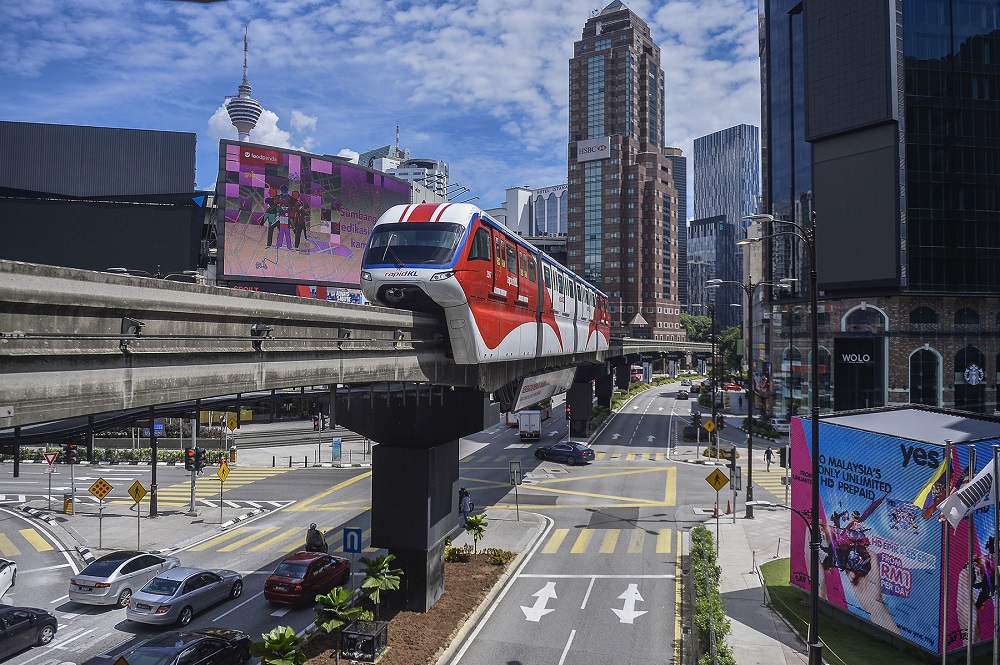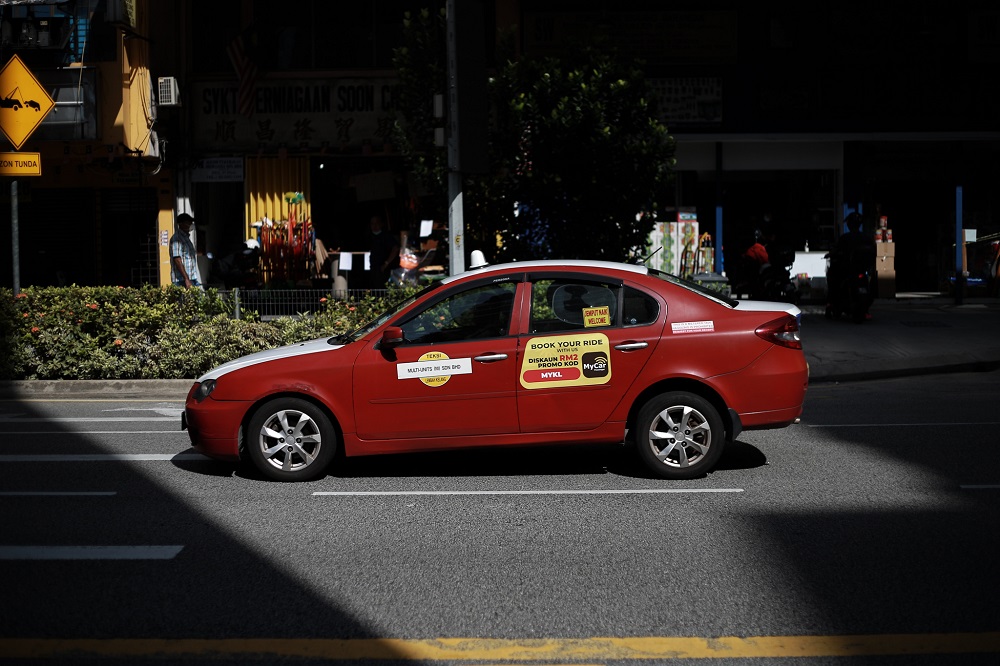KUALA LUMPUR, May 5 — It’s almost like stepping into a new world with considerably more relaxed rules for Malaysians under the government’s latest regulations for the fifth round of the movement control order, otherwise known as the conditional MCO (CMCO), following the country’s success in flattening the curve of new Covid-19 cases.
But what are the new rules by the federal government for the CMCO gazetted on May 3?
Here’s a quick summary of the new regulations for the CMCO (May 4 to 12) and how it compares to the regulations for the fourth phase of MCO (April 29 to May 3):
1. What is the title of the new regulations?
Prevention and Control of Infectious Diseases (Measures within Infected Local Areas) (No. 5) Regulations 2020.
(The number five in this new set of regulations shows that it is the fifth such regulation created this year, with the government via the health minister previously introducing such regulations every time it started a new MCO from phase one to phase four).
2. When do the new regulations take effect?
The new set of regulations for CMCO was gazetted on May 3, and is to take effect from May 4 (yesterday) to May 12.
It also states that the older set of regulations for MCO 4 has been revoked, but we will compare the new set of CMCO rules against the MCO 4 rules to find out how much of the restrictions have been lifted:
3. No more 10km travel restriction
.jpg)
Under the new regulations’ Regulation 4, Malaysians may now move fairly freely about within any “infected local area” — otherwise known as states or federal territories, or in other words without crossing state borders — with only one restriction mentioned.
The only restriction named under Regulation 4 is that no one can enter or exit a place where the enhanced movement control order (EMCO) is in place, except for anyone providing healthcare and medical services, or anyone given permission to do so by an authorised officer.
How was it under MCO 4 regulations:
This is markedly more relaxed than MCO 4’s regulations, which had carried a long list of specific conditions if anyone wants to move about within a state or federal territory, including only to get food, medicine, daily necessities, healthcare, medical services, essential services, or to perform official duty or essential services-related duty, or for necessary and essential infrastructure works.
Unlike the CMCO regulations, the MCO 4 regulations had also said such movements were limited to only within 10km of a person’s house when purchasing food, medicine, dietary supplements, daily necessities or other goods from essential services providers or to seek healthcare or medical services, with movements allowed beyond 10km to the nearest place if such items or services were not available within 10km of their home.
MCO 4 regulations also said food could only be sold via drive-through, takeaway or delivery, but the CMCO regulations do not have a similar limitation. (This matches the federal government’s announcement that dining-in would be allowed from May 4 onwards subject to SOPs, although some state governments have already indicated they would not allow dine-ins.).
4. Interstate travel allowed for stranded persons or for work
The rules for interstate travel are now relaxed slightly by allowing such travels for those needing to make trips to and from work, or for those who are stranded due to the MCO and wish to return home. (This new regulation would effectively enable interstate travel for stranded Malaysians according to the police’s May 7 to May 10 schedule).
Just like before under regulations for MCO 4, those who have “special and particular” reasons for interstate travel have to seek written permission first from the police officer in charge of the police station nearest to his home.
The long list of conditions for movement within state — such as only for daily necessities, healthcare, essential activities — had also applied to interstate travel under MCO 4’s regulations, but the new regulations do not carry such conditions.
5. Four people per private car, with conditions
For those driving a private vehicle, the new regulations allow a maximum of four people in each — namely the driver and three passengers — provided that all four of them stay in the same house. The regulations do not state that they are required to be family members.
How was it under MCO 4 regulations:
Under MCO 4 regulations, a person can only be accompanied by one family member staying in the same house when moving about to buy food, medicine, supplements, daily necessities or other essential goods, while a person moving about to seek healthcare or medical services can only be accompanied by any other person as may be reasonably necessary.
6. Maximum of two passengers in taxis or e-hailing vehicles
The new regulations state that a driver of a “hire car, taxi cab, airport taxi cab, limousine taxi cab or e-hailing vehicle” cannot carry more than two passengers for each journey.
For other public transport providers on land, sea or air, they are required to only carry half of their maximum capacity of the number of passengers for each trip.
How was it under MCO 4 regulations:
Other than listing transport by land, sea or air as “essential services”, MCO 4 regulations did not have specific rules regarding public transport.
6. Maximum funeral attendance at 20 people
The new regulations ban gatherings and processions for economic, religious, educational and learning, sports, recreational, social or cultural purposes, but specifically state that a gathering for a funeral may be allowed with the condition that only a maximum of 20 people attend the funeral.
How was it under MCO 4 regulations?
The older set of regulations had a similar ban on gatherings except for the mention of economic and educational and learning purposes, while it had not specified the maximum number of attendees allowed at a funeral ceremony and had only said attendance to funeral ceremonies shall be “kept to the minimum”.
7. Some things stay the same
Other regulations have been maintained, such as the requirement for any Malaysian citizen, Malaysian permanent resident, expatriate returning from abroad to undergo health checks upon arrival in Malaysia.
The penalty for breaching the MCO regulations have also been kept at the maximum fine amount of RM1,000, maximum jail term of six months, or both.
8. A different approach

Under the MCO 4 regulations, the approach taken was to list out 15 categories of essential services allowed to operate during the MCO — including food; medical and healthcare; water; energy; security and defence; solid waste and sewerage; transportation by land, water or air; port, dock, airport; communication and internet; banking and finance; e-commerce; services relate to fuel and lubricants; hotels and accommodations; logistics for essential services; other services, industry, business as determined by the government.
However, the new regulations for the CMCO follow a different approach by listing out 13 specific types of activities prohibited during the CMCO.
The prohibited activities during the CMCO are listed as entertainment, leisure, recreational activities, religious, cultural, art festivities’ activities, business activities that may cause a crowd to gather, as well as activities at centralised labour quarters, employees’ hostel and dorms which may cause a crowd to gather; and installation and maintenance of machinery activities such as lift, escalator or tower crane at construction sites in groups which may cause a gathering.
Also prohibited under the CMCO are services in barbershops and beauty salons; fitting of clothes or using fitting rooms in clothing stores or trying on fashion accessories in stores or providing cosmetic testers in stores; filming movies, dramas, documentaries and advertisements; and cruise ship activities; tourism services and services at accommodation premises falling under the Tourism Industry Act.
The CMCO regulations also prohibit theory and practical examinations for shot-firer for mining and quarrying industry; certification for agri commodities; and sales and marketing of financial services industry and banking carried out in public places or outside of the premises of financial institutions and banks; as well as commercial activities involving sales and marketing that are carried out in public places or not within business premises — but not including food business at food courts, hawker centres, food stalls, food trucks.
In explaining how the CMCO regulations differ from previous regulations, Senior Minister Datuk Seri Mohamed Azmin Ali yesterday said only prohibited activities would amount to an offence, while any activity not listed as a prohibited activity would be allowed during the CMCO period.
“In this regard, the CMCO differs from the previous MCO Stage 1, 2, 3 and 4 in that under the CMCO there is leeway given for its implementation so as to enable almost all economic sectors to restart in a controlled and prudent setting,” he said when pointing out the flexibility under the new regulations.




















